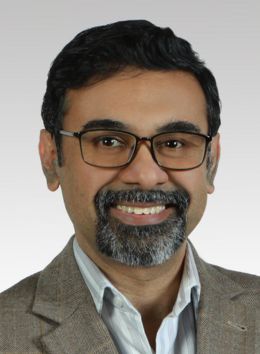
Khawar
SARFRAZ
Dr. Sarfraz received the B.Sc. degree in Electronic Engineering from GIK Institute of Engineering Sciences and Technology, Topi, Pakistan, in 2000, the M.Sc. degree in Electrical Engineering (Specialization: Microelectronics) from Delft University of Technology, Delft, The Netherlands, in 2009, and the Ph.D. degree in Electronic and Computer Engineering from The Hong Kong University of Science and Technology, Hong Kong, in 2016.
He was associated with the electronics industry (mostly start-ups in Europe and Asia) for over 12 years where he was involved in the design, verification, test, and management of specification/research-based products and systems. During this time, he contributed at key stages of the ASIC/FPGA/PCB-based product life cycle and steered projects of varying complexity and scale from concept phase through to delivery in the semiconductor, telecom, wireless, aerospace, and consumer electronics segments of the industry.
Previously he also served as an educationist at Lahore University of Management Sciences and at Center for Advanced Studies in Engineering in Pakistan for over 2 years. During that time, he taught UG/PG EE courses, co-developed a UG EE course, and supervised a Master thesis on low-power memory circuits. Later during his TA-ship at HKUST, he was once again the co-developer for a PG EE course. His current research interests include engineering education, ultra-low voltage digital integrated circuits, novel memory devices and architectures for AI, and chip-level verification methodologies.
Dr. Sarfraz received the Myril B. Reed Best Paper Award at IEEE Midwest Symposium on Circuits and Systems (MWSCAS) in 2016, and the Outstanding Paper Award at the 3-yearly IEEE Electron Devices and Solid-State Circuits (EDSSC) Students Symposium in 2014.